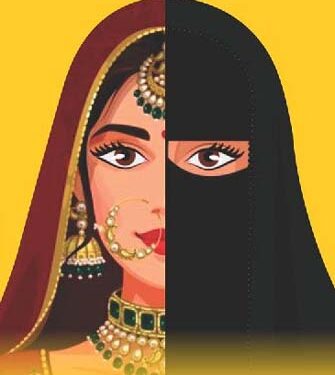- The state government in 2021 amended the Gujarat Freedom of Religion Act that penalises forcible or fraudulent religious conversion by marriage
- The Gujarat High Court later stayed certain contentious sections of the Act and its order was challenged in the Supreme Court, where it is pending
NE NEWS SERVICE
AHMEDABAD, JULY 31
Amidst the raging controversy over ‘love jihad’ and increase in cases of ‘love marriage’, Gujarat Chief Minister Bhupendra Patel has said his government will study the possibility of a system making parental approval mandatory in love marriages if it is constitutionally feasible. Incidentally, a legislator of the opposition Congress said if the government introduces any such legislation in the assembly, then he will support it.

Addressing an event organised in Mehsana on Sunday by the Sardar Patel Group, an outfit representing the Patidar community, CM Bhupendra Patel said state Health Minister Rushikesh Patel told him to get a study done into the incidents of girls eloping for marriage so that a system is created where the consent of parents is made mandatory (for marriages).
“(Patel) told me to look afresh and carry out a study into the incidents of elopement of girls so as to see if there is a possibility of (mandatory) consent of parents into (love marriages). If the Constitution supports it, then we will carry out a study regarding this and try to get the best result for this,” he said.
“At a time when parents are neglected in love marriages, the government is thinking of creating a specific system regarding love marriages that is constitutionally feasible,” MLA Imran Khedawala said.
“The CM has assured to get a study conducted on mandatory parental approval in love marriages. The chief minister has spoken about this. If the government brings such law in the assembly session, then my support is with the government,” he said.
The state government in 2021 amended the Gujarat Freedom of Religion Act that penalises forcible or fraudulent religious conversion by marriage.
Under the amended Act, there is a provision of up to 10 years’ imprisonment if a person is found guilty.
The Gujarat High Court later stayed certain contentious sections of the Act and its order was challenged in the Supreme Court, where it is pending.










